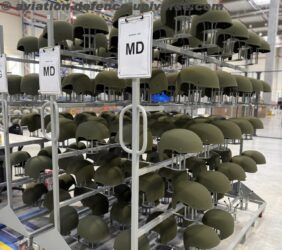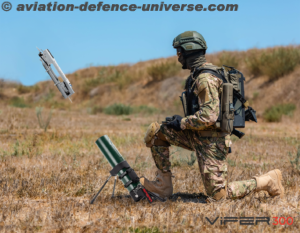Andoya Space Centre. Norway. 07 October 2016. Raytheon has successfully flight-tested the newest variant of the combat-provenAMRAAM® missile from the National Advanced Surface-to-Air Missile System, or NASAMS™, surface-based system. Featuring an enlarged rocket motor and other enhancements, AMRAAM-ER will greatly expand the NASAMS engagement envelope with a 50 percent increase in maximum range and 70 percent increase in maximum altitude.
The live-fire shot verified that the complete system – including the AMRAAM-ER missile, NASAMS missile launcher, Sentinel Radar and the Fire Distribution Center, or FDC – worked seamlessly together to engage and destroy a target drone with a live-warhead-equipped missile.
“AMRAAM-ER combines the guidance section and warhead from AMRAAM with the rocket motor from the Evolved Sea Sparrow Missile to affordably boost the NASAMS capability,” said Dr. Taylor W. Lawrence, president of Raytheon Missiles Systems. “We believe it’s an ideal solution for ground-based air defense customers worldwide.”
Norwegian military NASAMS operators conducted the test. They controlled and employed the AMRAAM-ER missile from an upgraded FDC, proving the effectiveness of the missile when matched with the NASAMS launcher.
Designed specifically for ground-based air defense, NASAMS is owned by seven countries and has been used by the U.S. National Capital Region’s air defense system since 2005. Manufactured by Raytheon and Kongsberg, NASAMS is the most widely used short-and medium-range air defense system in NATO. In addition to the U.S., it is in service inNorway, Finland, Spain, The Netherlands and one undisclosed country. It is also currently in production for Oman.
“NASAMS with AMRAAM-ER gives lower-tier defenses additional capability against threats such as cruise missiles, aircraft and drones,” said Wes Kremer, president of Raytheon Integrated Defense Systems.
Raytheon completed extensive lab testing on the AMRAAM-ER in 2015, enabling the company to move forward with launcher and system integration.
































































































































